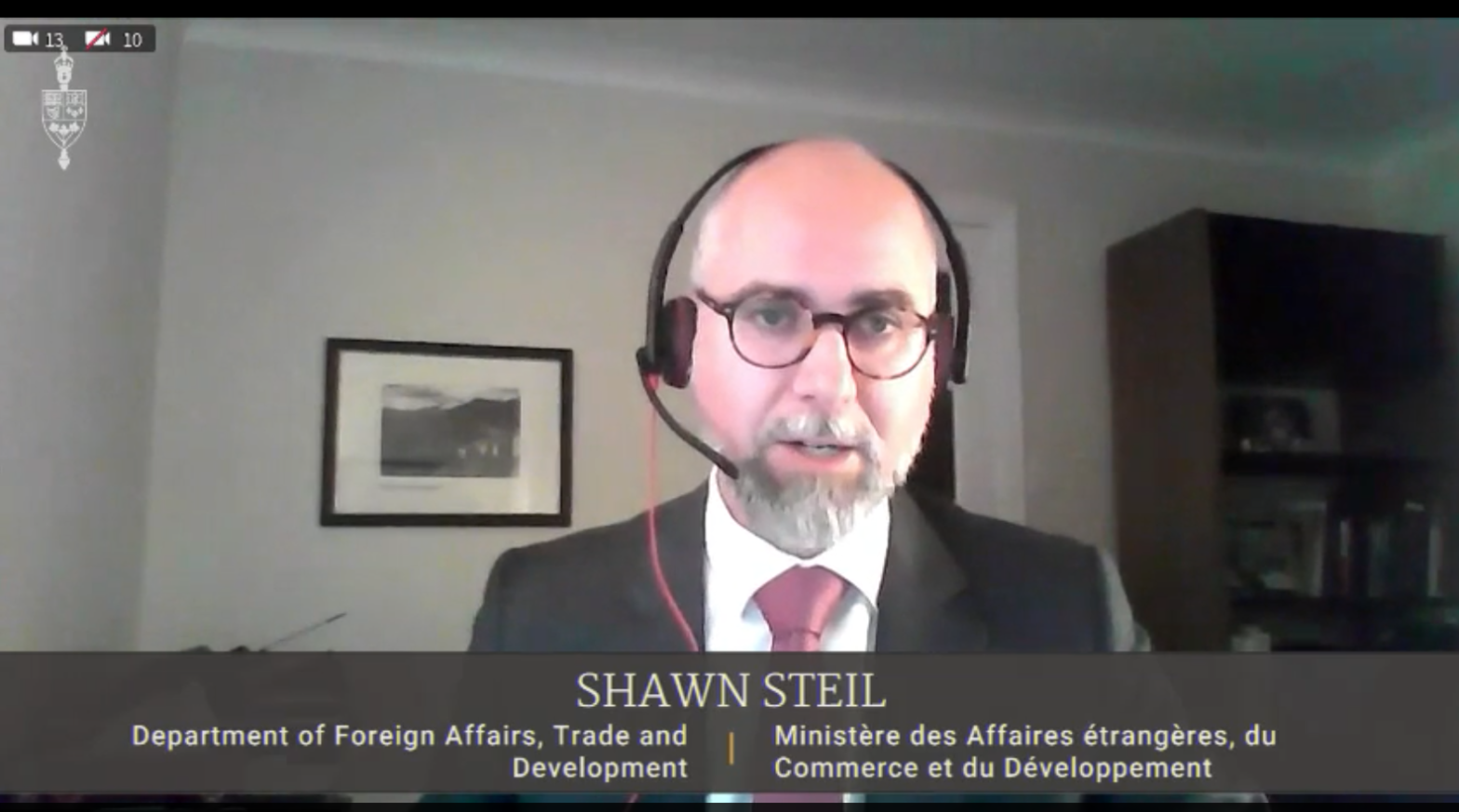Ottawa, November 21, 2020 – As part of an ongoing study of China-related issues by the Parliamentary Committee on Canada-China Relations, Mr. Shawn Steil, the Executive Director, Greater China Policy and Coordination, Global Affairs Canada testified on Tibet before the committee on November 17th.
The testimony covered a wide range of topics including Canada’s growing concerns over the increased crackdowns on Tibetan people in the last decade, the lack of reliable information coming from within Tibet and the difficulties faced by foreign diplomats in their efforts to visit the area in person, Canada’s position on the status of Tibet, Middle Way Approach and the Central Tibetan Administration, and specific issues such as forced labour and resettlement of Tibetan nomads, as well as Chinese interference in Sikyong Dr. Lobsang Sangay’s visit to Ottawa.
Describing the difficulty of access to Tibet, Mr. Steil says “access to Tibet remains strictly controlled by the Chinese government and on rare occasions when official visits are allowed, they are highly scripted. In recent years, Tibet’s central government has made it more difficult for diplomats, journalists and foreigners overall to visit – a travel permit and an invitation is necessary”. Recently, Canada’s ambassador to China, Dominic Barton visited Tibet’s capital Lhasa, at the invitation of the Chinese government. It was the first visit by a Canadian official since 2015.
“The lack of meaningful access to Tibet is one aspect of severe restrictions imposed by Chinese authorities on the Tibetan people. The Government of Canada remains deeply concerned about the human rights situation affecting Tibetans, in line with reports such as those by NGOs and by the UN Committee on Elimination of Racial Discrimination” adds the Executive Director, Global Affairs Canada.
Mr. Steil was asked questions by several members of the committee, including one by MP John Williamson seeking clarification on Canada’s stance towards the Middle Way Approach. In response, Mr. Steil notes that while Canada does not take a particular position regarding the Middle Way Approach, the government has consistently advocated for the Government of China to engage in meaningful dialogue with the Dalai Lama and his representatives in the Central Tibetan Administration.
“The content of that dialogue we haven’t taken a position on, but certainly we recognize that the middle-way approach does refute the complaint that we often hear from the Chinese government that the Dalai Lama and his ‘clique’ are separatists and troublemakers trying to split the country. If they were listening to what Lobsang Sangay and others are saying about the middle-way approach, they would recognize that splitting the country is not what they’re looking for,” said Executive Director Shawn Steil.
The last talks held between envoys of the Dalai Lama and the Government of China took place in 2010. The resumption of this exchange remains a key priority for the Central Tibetan Administration, and for candidates of the upcoming CTA leadership elections.
Tibetans in Canada remain hopeful that Canada can play a vital role in facilitating the resumption of Sino-Tibetan dialogue. During the testimony, Chair of Canadian Parliamentary Friends of Tibet, MP Arif Virani, drew comparisons between the search for genuine autonomy for the Tibetan people inside Tibet to the model of Canada’s federation, which has established regions to promote linguistic, cultural, and religious devolution, whilst still operating within the broader framework of the federal constitution.
Sherap Therchin, the Executive Director of the Canada Tibet Committee, echoes MP Virani’s sentiments, that “Canada enjoys a wealth of experience negotiating autonomy arrangements with its First Nations and with provincial governments. Such expertise would be of great value in the Tibetan context and we encourage your government to find a suitable opportunity to share lessons learned with concerned parties.”
The testimony comes on the heels of the recent visit by Canadian Ambassador in Beijing Mr. Dominic Barton to Tibet, and follows the unanimous approval of a resolution calling for Sino-Tibetan dialogue by the Canada-China committee in August.
Video link to the testimony: https://parlvu.parl.gc.ca/Harmony/en/PowerBrowser/PowerBrowserV2/20201117/-1/34278?Language=English&Stream=Video&fbclid=IwAR1u-3CV_GNEjrEULLyEgDVJ1cCoamE_YHyLN-BZfu0NfnVHNjLnBCrqJZg
By Sherap Therchin and Anvesh Jain

